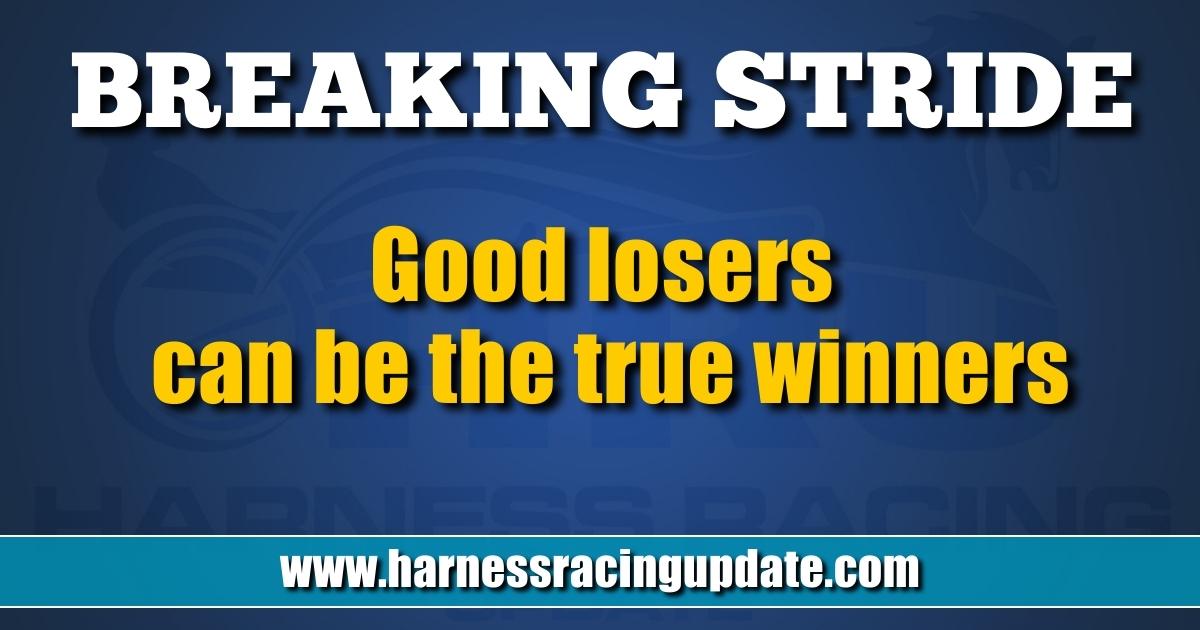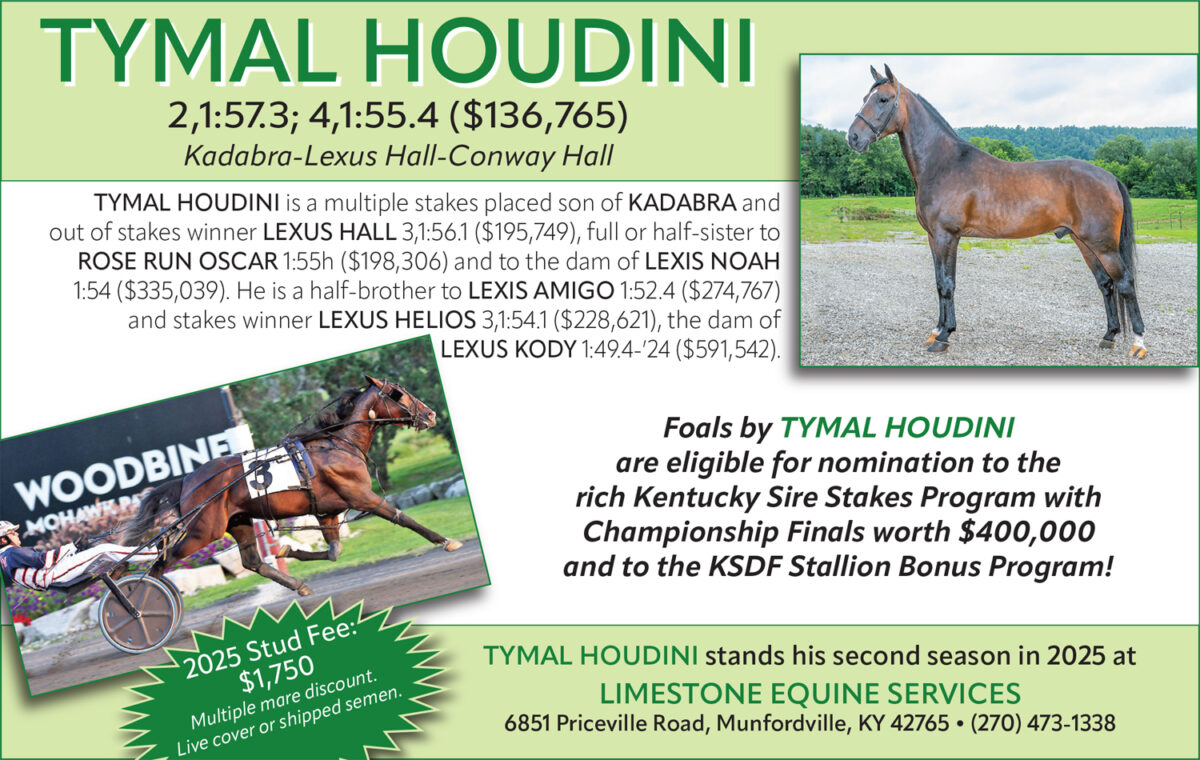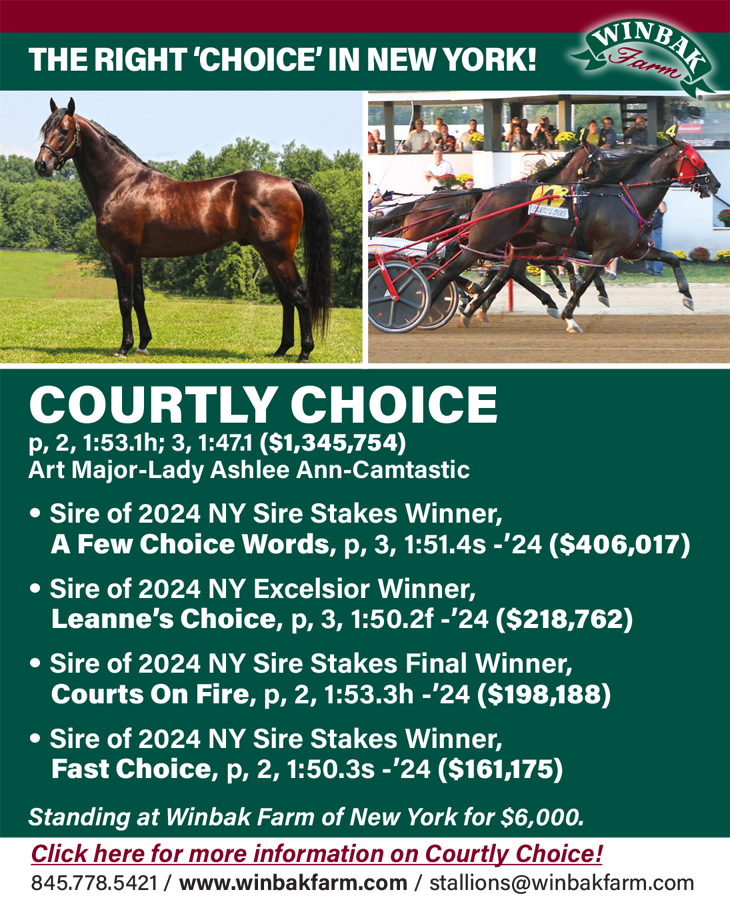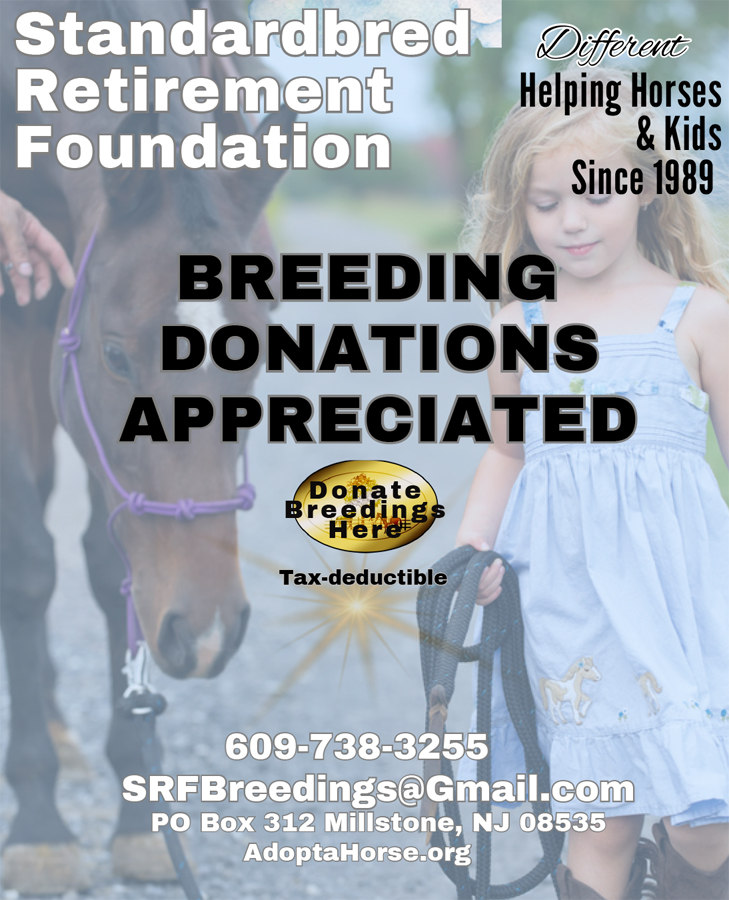
Good losers can be the true winners
by Trey Nosrac
When you play our game, losing is part of the equation. We all have a long list of harness-racing heartbreaks and bad breaks. Do you remember the massive Pick-5 wager that you missed by a photo finish, the wonder horse you owned that bowed a tendon, the time you drew outside posts in five major races in a row, the time you were the underbidder on a world champion, and on and on?
Once upon a time, while driving between Florida and Ohio, I stopped at a training center in Georgia. After watching a nice-looking 2-year-old trotting filly training down, I wrote a check for partial ownership, a spur-of-the-moment decision. Before crossing the Ohio border, perhaps before the ink had dried on my signature, word arrived the filly had taken a career-ending misstep. Lighting a pile of cash on fire at a Kentucky rest stop and watching the smoke rise would have been more fun than that equine investment.
The game is easy when things are going well in our sport. When you are winning wagers, when a newly purchased yearling climbs into the van, when your 2-year-old is training well, and especially when your horse wins a race, the feeling is elating, exhilarating, almost euphoric. A rush of racetrack good fortune fires up rewarding neural activity, and your endorphins surge, much like morphine or cocaine.
But the good times do not last in horse racing. Often, our game feels like an endless road of expensive suffering punctuated by spasms of success. People lose differently. People deal with highs and lows differently. People are endlessly fascinating.
Perhaps you have witnessed this scenario. Four new people invest in a yearling and share the costs. Every investor knew the risks or pretended they knew the risks (we are all a bit delusional in the ownership game). The horse does not make it to the races. One owner shrugs and smiles. One of the investors becomes angry and frustrated and will never reinvest in another racehorse. One is disappointed and frustrated but has the mentality of trying until success knocks on the door. One will analyze the experience before trying again, confident he can improve before reinvesting.
Money? Of course, money factors in, but probably less than we think. How many of you have watched wealthy people who seemed to enjoy the challenge of harness racing, individuals who can easily weather any fiscal setback, who could buy a hundred yearlings, but they quickly bow out because the psychological pain of losing or being labeled a loser or a sucker is too high of a mental hurdle to clear. On the other hand, some people who really cannot afford our sport dive right back in.
After decades in athletics, as a player, coach, and writer, watching people lose is intriguing. Imagine a sport; let’s use tennis. Every player walks onto the court with a strong desire to win. One will lose. Some lose with grace, some blame, some throw racquets, some fire coaches, some have a flare of pique but are fine tomorrow, some stew in anger for weeks, and some quit. Our psychological dispositions guide our reactions to losing, and those tendencies are deep-rooted, complex, and rarely change.
Cognitively, to play our game of racing horses, where losing is commonplace, individuals need to be able to explain their losses to themselves. They need to be resilient. We see this all the time in harness racing. People who seem to hold on to the life raft in often choppy waters somehow take the highs and lows in stride in the racing game. They can turn the page.
In recruiting new gamblers and owners, we need to know our audience and consider with whom we sow our seeds. Introducing the pleasures of harnessing horse racing to individuals who fret over each lost dollar or lost race is fruitless. Poor losers are not a good fit. The first-time owner who drops five grand and acts like he was robbed at gunpoint or cheated will not likely be a second-time owner. The gambler who does not turn a profit at the racetrack and blames everyone and everything is likely to leave.
The inside of our heads is strange territory to understand. Patterns of dealing with losing are formed early, perhaps even hereditary. Good and bad things happen to everyone. Some respond with pessimism, others with optimism. Despite our share of curmudgeons and grumblers, I believe most of our members and future members are and will be optimists. Most harness racing people look forward to what they can gain and not look backward to what they have lost.
Horse racing enthusiasts are a hardy group who live the words of Rudyard Kipling, “If you can meet with Triumph and Disaster and treat those two imposters just the same, then yours is the earth and everything in it.”













